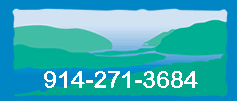|
Government Panel Endorses Acupuncture
In a landmark decision, a panel of scientists at the National
Institutes of Health announced that evidence clearly shows
acupuncture to be an effective, safe form of treatment for
certain medical conditions. The report, issued in November
1997, found that acupuncture was particularly effective in
treating nausea and pain; it also concluded that acupuncture
may be an acceptable alternative treatment for a long list
of other conditions including (but not limited to) addiction,
post-stroke rehabilitation, headache, menstrual cramps, tennis
elbow, fibromyalgia, low back pain, carpal tunnel syndrome,
osteoarthritis, and asthma.
Although this list represents only a fraction of the conditions
routinely and effectively treated by acupuncturists in the
U.S. and throughout the world, the panel's report is nevertheless
historic, in that it is the first time a U.S. government health
agency has officially endorsed any "alternative"
form of medicine. In formally recognizing acupuncture, the
United States joins a growing number of governments and international
agencies, including the World Health Organization, which recommend
it as an effective and safe treatment for a variety of conditions.
"There is sufficient evidence of acupuncture's value
to expand its use into conventional medicine and to encourage
further studies of its physiology and clinical value,"
the panel concurred at the conclusion of the 2 1/2 day conference
which was organized to evaluate the scientific and medical
data on the uses, risks, and benefits of acupuncture. They
also urged Medicare, Medicaid, and private insurance companies
to begin paying for acupuncture treatments.
Dr. Marjorie Bowman, NIH panel member and the chairwoman
of the University of Pennsylvania's Department of Family Practice
and Community Medicine, suggested that acupuncture now be
considered a treatment option that doctors and patients discuss
openly. Although an estimated one million or more Americans
are believed to be relying on acupuncture for the treatment
of a wide range of conditions, mainstream medicine has continued
to eye it warily. This is in part due to a lack of rigorous
research trials, as well as the suspicion that much of acupuncture's
effect may stem from an illusory "placebo effect,"
– the notion that a person's faith in the treatment
may promote healing all by itself. The panel, however, rejected
such an interpretation outright, stating that "considerable
evidence supports the claim that [opium-like] peptides are
released during acupuncture, and that the analgesic effects
of acupuncture are at least partially explained by this process."
“This is a pretty dramatic finding," said Dr.
David Ramsey, president of the University of Maryland Medical
Center, who was the chairman of the NIH panel and initially
an acupuncture skeptic. "Acupuncture has fewer side effects
and is less invasive than many of the other things we do in
conventional Western medicine. It's time to take it seriously."
The conference was sponsored by the NIH's Office of Alternative
Medicine, the National Cancer Institute, the National Heart,
Lung, and Blood Institute, the National Institute of Allergy
and Infectious Diseases, the National Institute of Arthritis
and Musculoskeletal & Skin Diseases, the National Institute
of Dental Research, the National Institute of Drug Abuse,
and the NIH Office of Research on Women's Health.
|



